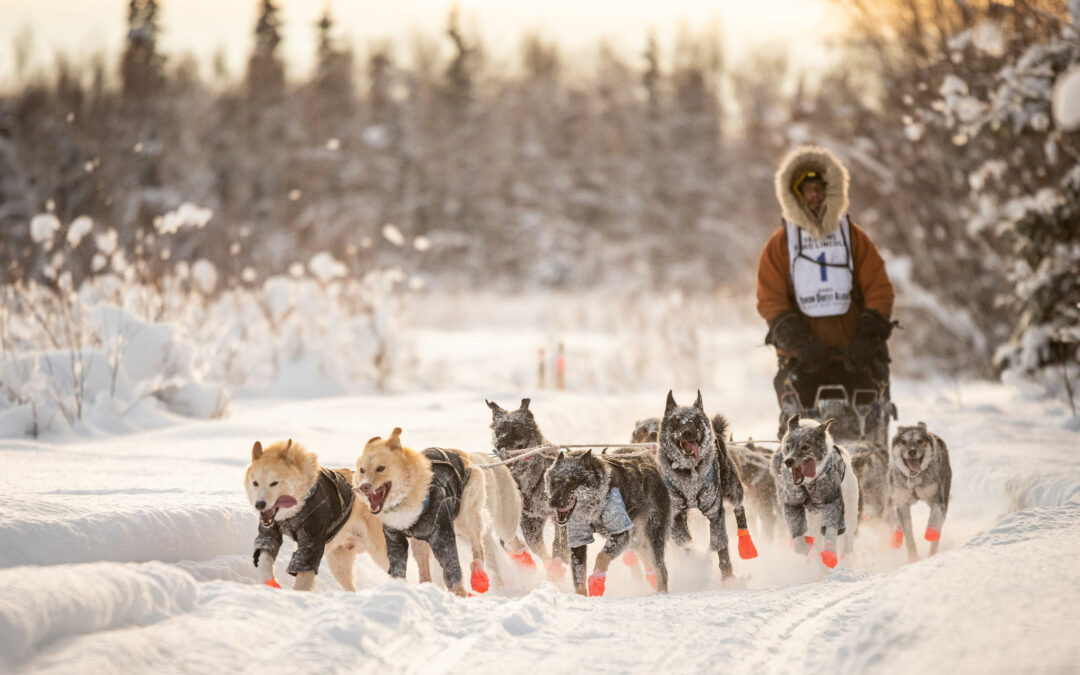Musher Brent Sass is an outlier: no matter the temperature, he prefers to camp along the trail and eschew the comfort of checkpoints.
The trail is where Sass is most comfortable and feels his dogs get the best rest, so unless mandatory rest is required at a checkpoint he generally only stops for a handful of minutes to grab straw and other supplies.
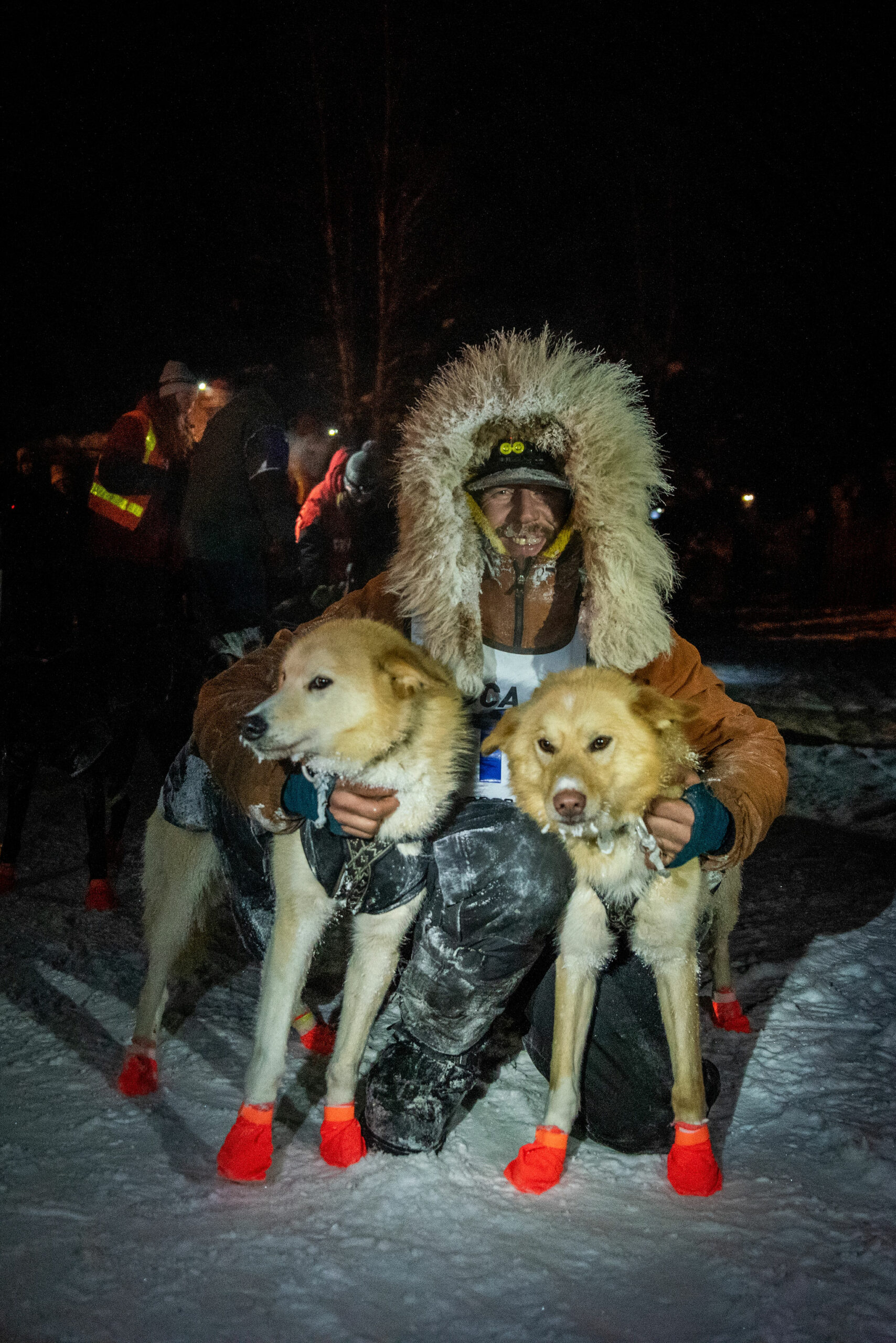
Yukon Quest champ Brent Sass at the finish. Photo courtesy Whitney McLaren Photography, Mushingphotos.com
Sass’ mantra of “run your own race” regardless of what the competition is doing paid off again at the 2023 Yukon Quest 550-mile sled dog race.
“The big thing for me was to keep the runs shorter, 50 to 60 miles, and not do the big pushes between checkpoints,” said Sass after finishing first in front of several hundred spectators outside the Pump House Restaurant along the Chena River Wednesday night. “It’s what makes the Quest unique. You can camp out there. You can set your own schedule. You’re not running checkpoint to checkpoint. I think that made it so I could keep the dog team fresh.”
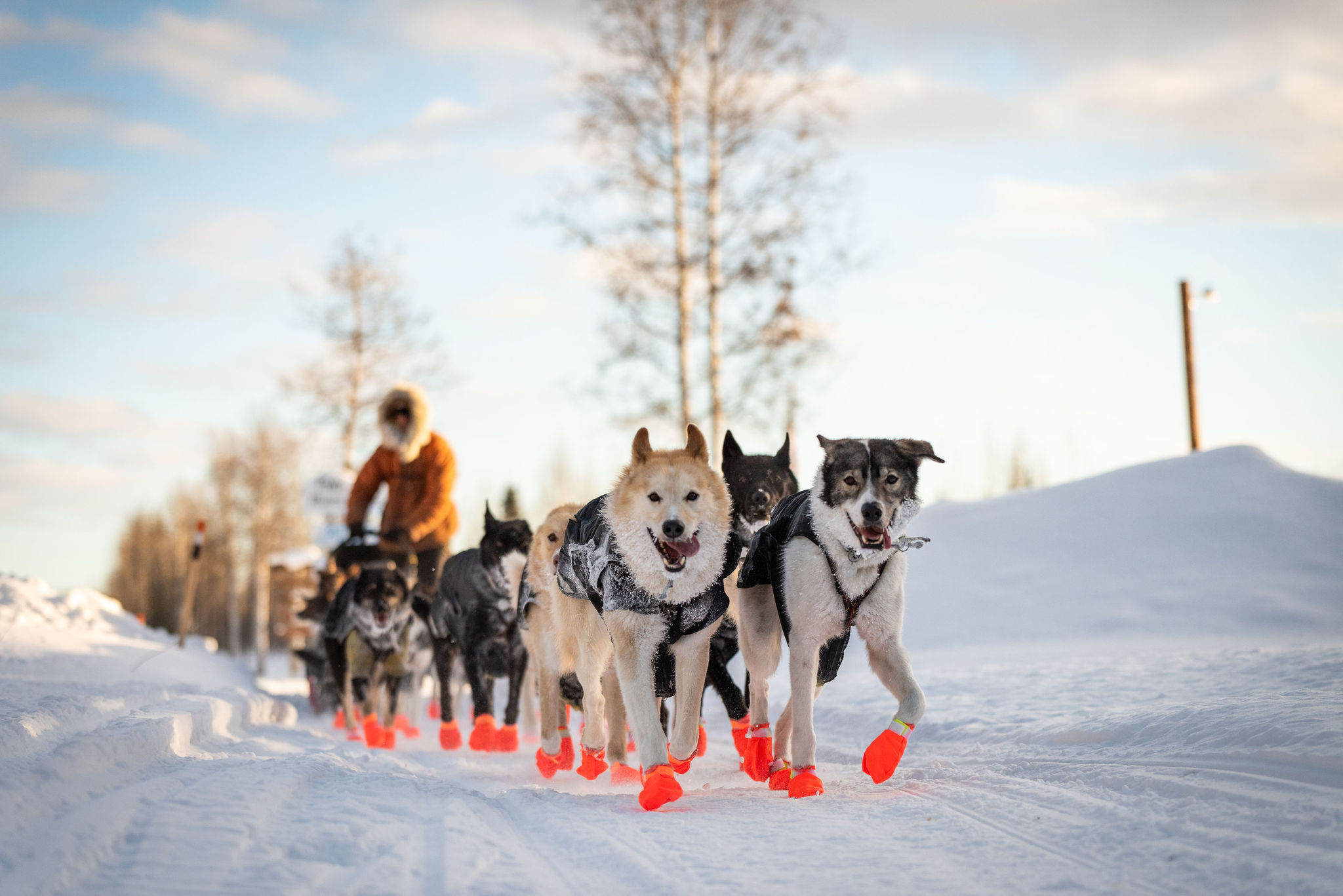
Photo courtesy Whitney McLaren Photography, Mushingphotos.com
Sass, 43, of Eureka grabbed an early lead on Saturday and never was seriously threatened, finishing in just under 4 days and 9 hours. In winning his first race in four tries this season, Sass earned $40,000 of the 100K purse and showed he’s a serious contender to defend his Iditarod Trail Sled Dog Race championship next month.
Sass, a former Fairbanks resident who sowed his mushing roots to the Quest beginning in 2006, earned his sixth title. He won full 1,000-mile race in 2015, 2019 and 2020 and also claimed pandemic-shortened races in Alaska and Canada in 2022.
With Yukon Quest Alaska and Canada officials in dispute over rules such as how much mandatory rest to include, the parties are now holding separate races on each side of the border.
This year’s Quest included just nine teams (none Canadian) in the 550-mile event, along with nine in the Quest 300 (won by Matt Hall) and 21 in an 80-mile race. The Yukon Quest Canada races will start Saturday.
The new route for the longest Alaska race was slated to travel from Fairbanks to Circle and then follow the Yukon River to Eagle before finishing in Tok. However, impassable “jumble” ice on the Yukon forced the Quest to instead run from Fairbanks to Circle and back, and then finish with another out-and-back between Fairbanks and Nenana.
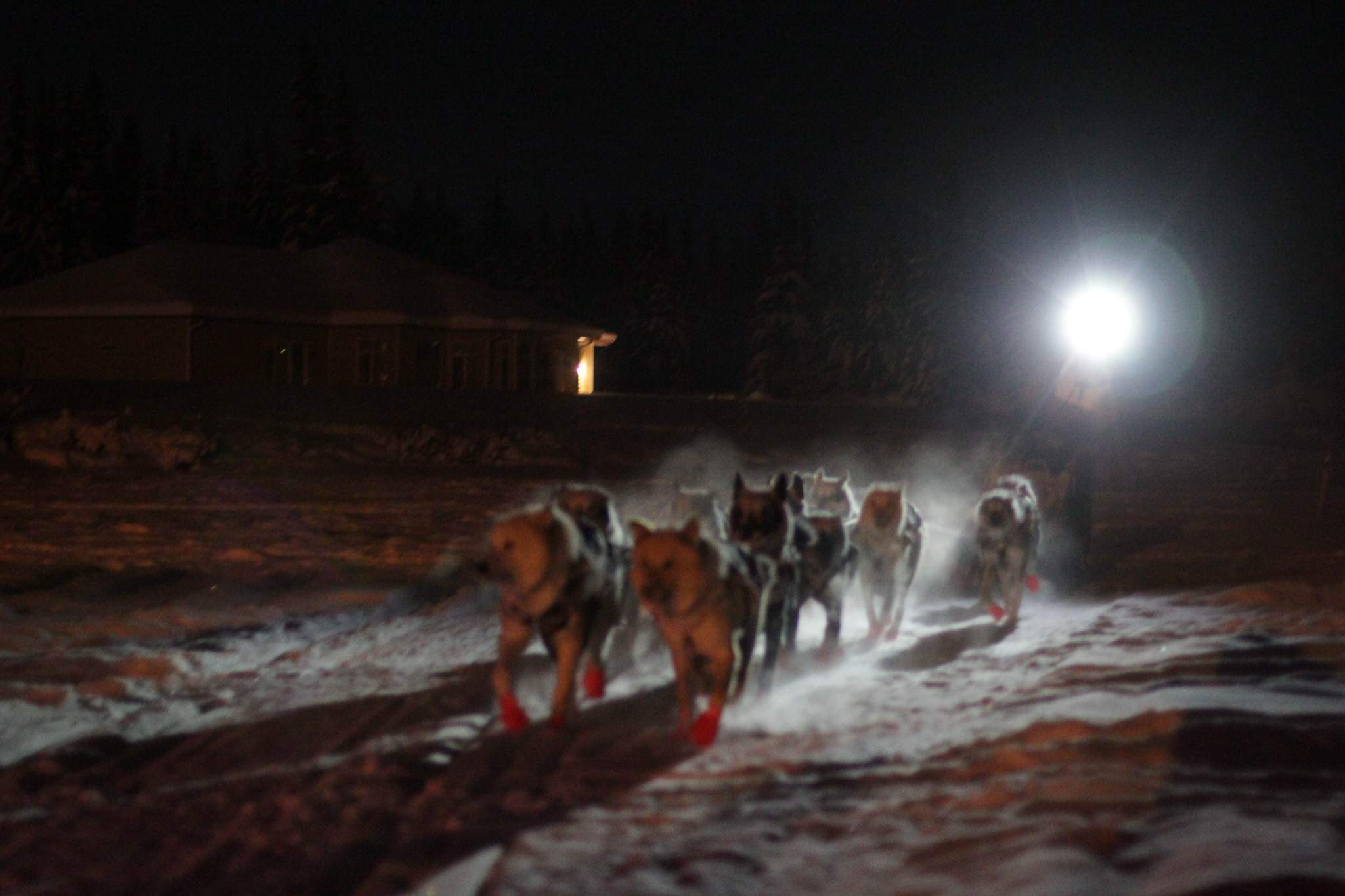
Photo courtesy Lex Treinen/KUAC
The change meant mushers had to tackle the notorious Eagle and Rosebud summits twice as well as travel back and forth on the typically frigid Birch Creek (which reportedly saw temperatures “only” reach 30 below this year).
Sass called Eagle Summit “an old friend of mine” and welcomed mushing up and down it from each direction; having excellent snow coverage and weather certainly helped this year. However, Sass’ biggest challenge occurred on the return trip of Rosebud, where he was slowed after needing to load two dogs in his sled bag for 30 miles.
His 7-year-old lead dog Slater never wavered.
“Slater is the best sled dog I’ll probably ever drive … he led every step of the way,” Sass, who finished with 12 of his 14 starting dogs, told Alaska Sports Report and other media at the finish. “He’s probably getting close to retirement … but I’ve got like 13 of his sons and daughters at home right now as puppies so I’ve got high hopes for the future.”
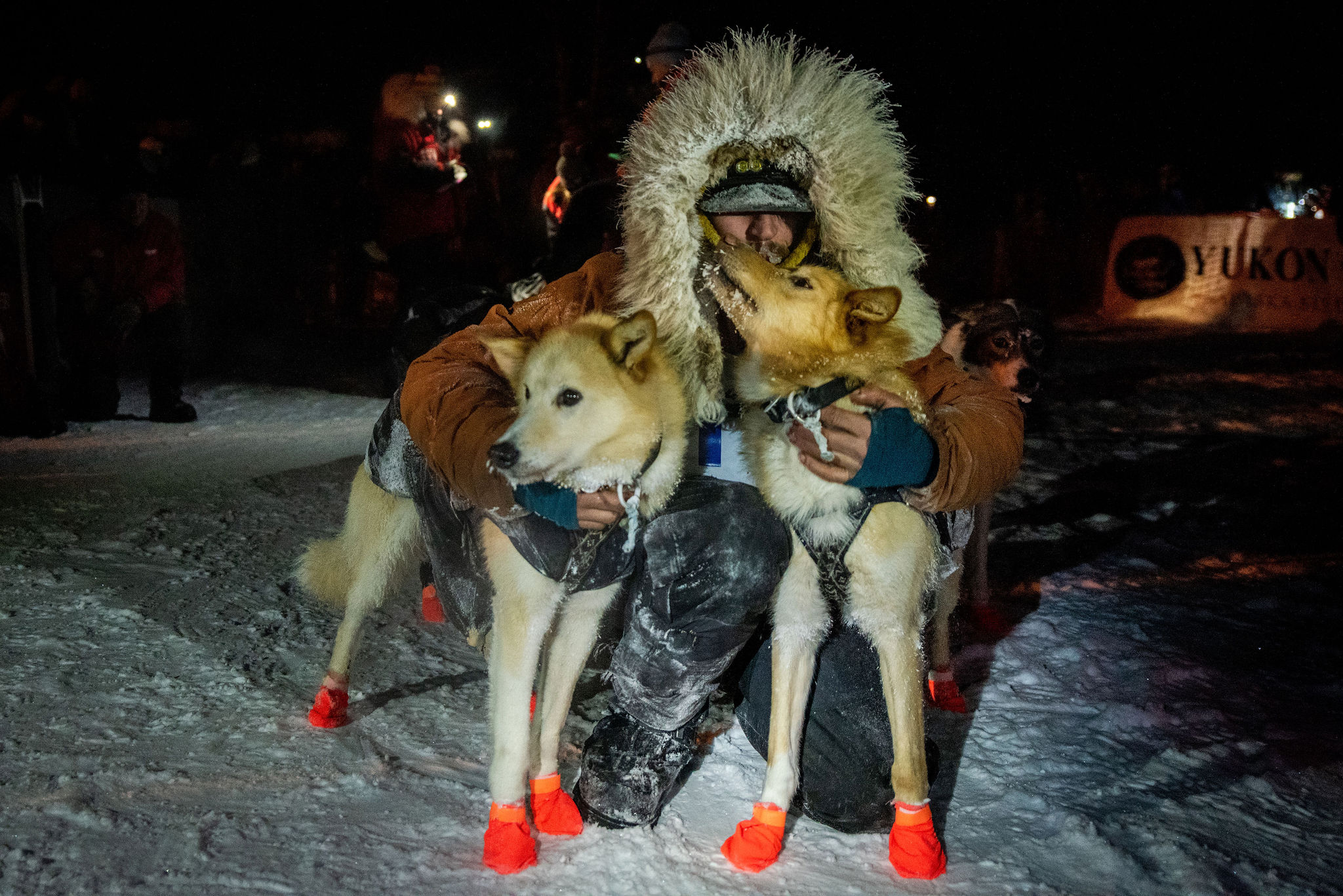
Photo courtesy Whitney McLaren Photography, Mushingphotos.com
Finishing second was 28-year-old Amanda Otto, who ran dogs from Jeff King’s Husky Homestead kennel in Denali Park. An Idaho native before moving to Alaska, Otto was in fifth place before executing a run not even Sass attempted: 100 miles from Two Rivers to Nenana checkpoints without camping. That 11 ½-hour run vaulted her past three mushers who needed 15 to 21 hours to cover the same stretch.
King was at the finish to congratulate Otto when she finished 3 hours, 35 minutes after Sass did it 7:45 p.m.
Among those Otto passed were Wade Marrs and Nic Petit, Quest rookies who have both finished among the top five at the Iditarod.
Marrs placed third at 3:02 a.m. Thursday with seven dogs, followed by Cody Strathe at 4:55 a.m. and Petit, this year’s Copper Basin 300 winner, at 6:02 a.m.
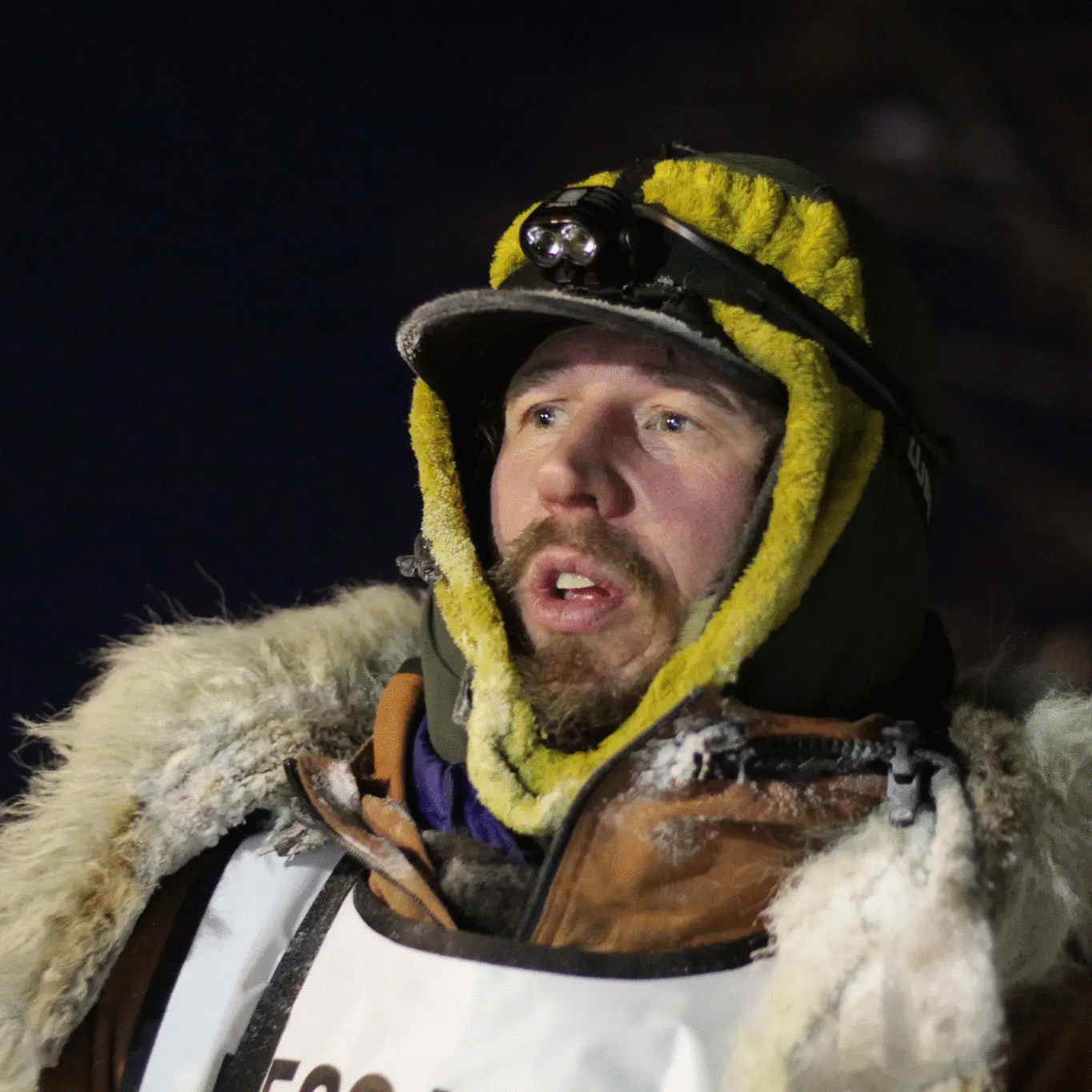
Photo courtesy Lex Treinen/KUAC
“We’re all good. Just making mistakes,” Petit posted on Facebook with a photo of the team camping along the trail. “Turn the mistake into a good experience anyway.”
Sass expects plenty of competition in the Iditarod from the likes of Marrs, Petit and Jessie Holmes — who was on hand to congratulate Sass at the finish — among others. But he’s making no predictions for that race.
“I’ve got a good team, they proved it here,” Sass said. “I feel we have one of the best dog teams in the world.”
– Featured courtesy Whitney McLaren Photography, Mushingphotos.com

